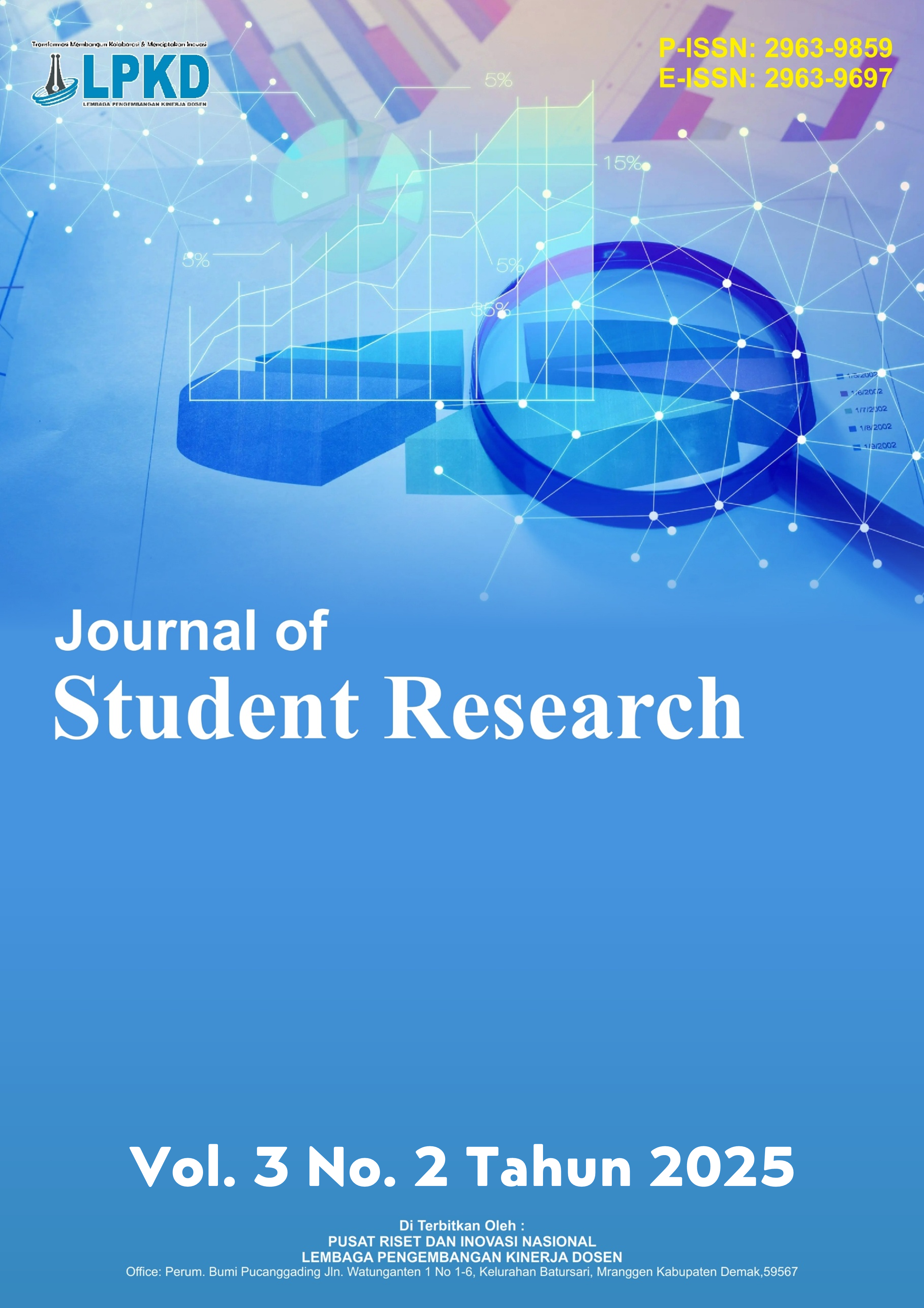Mengembangkan Minat Wirausaha Anak Muda : Kunci Sukses Entrepreneurship dan Life Skills
DOI:
https://doi.org/10.55606/jsr.v3i1.3533Keywords:
Youth, Entrepreneurship, Life Skills, EntrepreneurshipAbstract
Entrepreneurship is not something that can only be achieved by individuals who have certain talents, on the contrary, by taking business risks in creating new opportunities, one can develop an entrepreneurial spirit. However, entrepreneurship must be accompanied by interest. Interest is a strong drive within a person to do something. Based on this study analyzing the influence of entrepreneurial skills on the success of a business, the type of descriptive research carried out through data collection in the field, the method used in this study is an explanatory survey. This article emphasizes that fostering entrepreneurial interest is not only beneficial for individual economic success, but also contributes to economic growth and innovation in society. The importance of encouraging entrepreneurial interest among young people as a foundation for building success in the world of entrepreneurship. By having a strong interest in entrepreneurship, young people can develop important life skills such as creativity, perseverance, risk management, and problem solving.
References
Andriana, A. N., & Fourqoniah, F. (2020). Pengembangan jiwa entrepreneur dalam meningkatkan jumlah wirausaha muda. PLAKAT (Pelayanan Kepada Masyarakat), 2(1), 44. https://doi.org/10.30872/plakat.v2i1.3823
Davis, S. M. (2002). Social entrepreneurship: Towards an entrepreneurial culture for social and economic development. Available at SSRN 978868.
Djaali, H. (2007). Psikologi pendidikan. Jakarta: Bumi Aksara.
Firmansyah, M. A., & Roosmawarni, A. (2019). Kewirausahaan (Dasar dan konsep). Qiara Media.
Fuâ, I. F., & Budiarso, E. (2009). Hubungan minat berwirausaha dengan prestasi praktik kerja industri siswa kelas XII Teknik Otomotif SMK Negeri 1 Adiwerna Kabupaten Tegal tahun ajaran 2008/2009. Jurnal Pendidikan Teknik Mesin, 9(2), 92.
Hendro, I. (2011). Dasar-dasar kewirausahaan. Jakarta: Penerbit Erlangga.
Hery. (2017). Kewirausahaan. Jakarta: Grasindo.
Hisrich, R. D., Peters, M. P., & Shepherd, D. A. (2008). Entrepreneurship. New York: McGraw-Hill.
Hyder, S., & Lussier, R. N. (2016). Why businesses succeed or fail: A study on small businesses in Pakistan. Journal of Entrepreneurship in Emerging Economies, 8(1), 82–100.
Kristanto, H., & Heru, R. (2009). Kewirausahaan (Entrepreneurship): Pendekatan manajemen dan praktik. Yogyakarta: Graha Ilmu.
Lazear, E. P. (2003). Entrepreneurship. Discussion Paper Series No. 760.
Machfoedz, M., & Machfoedz, M. (2015). Kewirausahaan: Metode manajemen dan implementasi (Edisi Kedua). Yogyakarta: BPFE.
Manimala, K., Selvi, K., & Ahila, R. (2011). Hybrid soft computing techniques for feature selection and parameter optimization in power quality data mining. Applied Soft Computing, 11(8), 5485–5497.
Megantoro, D. (2015). Pengaruh keterampilan, pengalaman, kemampuan sumber daya manusia terhadap usaha kecil menengah (Studi kasus di Panjangrejo, Srihardono, Pundong, Bantul Yogyakarta). Universitas PGRI Yogyakarta.
Meng, L. A., & Liang, T. W. (1996). Entrepreneur, entrepreneurship and enterprising culture. Paris: Addison-Wisley Company.
Nitisemito, A. S. (2006). Manajemen personalia. Jakarta: Ghalia Indonesia.
Ramadhani, N. T., & Nurnida, I. (2017). Pengaruh mata kuliah kewirausahaan terhadap minat berwirausaha mahasiswa. Jurnal Khatulistiwa Informatika, 1(1), 89–97.
Rifa’i, M., & Husinsah, H. (2022). Kewirausahaan & manajemen usaha kecil.
Scarborough, V. L., & Valdez, F. (2009). An alternative order: The dualistic economies of the ancient Maya. Latin American Antiquity, 20(1), 207–227.
Suharnan. (2001). Kreativitas teori dan pengembangan. Surabaya: Laros.
Suryana. (2006). Kewirausahaan: Pedoman praktis (Kiat dan proses menuju sukses). Jakarta: Salemba Empat.
Widiastuti, N., & Kartika, P. (2017). Penerapan model kelompok usaha kreatif Islami (KUKIS) dalam pemberdayaan perempuan berbasis pondok pesantren. Empowerment: Jurnal Ilmiah Program Studi Pendidikan Luar Sekolah, 6(2), 20.
Widodo, A. S. (2012). Buku ajar kewirausahaan entrepreneur agribuisiness start your own business. Yogyakarta: Jaring Inspiratif.
Woodward, J., Beckmann, S., Driscoll, M., Franke, M., Herzig, P., Jitendra, A., Koedinger, K. R., & Ogbuehi, P. (2012). Improving mathematical problem solving in grades 4 through 8: IES practice guide. NCEE 2012-4055.
Zulkifli, R. M., & Rosli, M. M. (2013). Entrepreneurial orientation and business success of Malay entrepreneurs: Religiosity as moderator. International Journal of Humanities and Social Science, 3(10), 264–275.
Downloads
Published
How to Cite
Issue
Section
License
Copyright (c) 2024 Journal of Student Research

This work is licensed under a Creative Commons Attribution-ShareAlike 4.0 International License.









